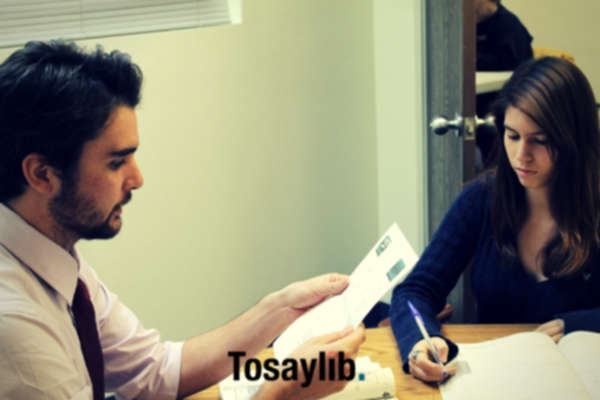Sample emails to your thesis supervisor
A good thesis requires good communication between you and your thesis supervisor. This includes emails! Yet, even a simple email can lead to stress and overthinking. If you struggle to communicate with your thesis supervisor via email, have a look at six sample emails for inspiration.
Disclaimer: This post may contain affiliate links, which means I may earn a small commission if you make a purchase using the links below at no additional cost to you. I only recommend products or services that I truly believe can benefit my audience. As always, my opinions are my own.

General tips for emailing your thesis supervisor
Sample email to thesis supervisor inquiring about potential supervision, sample email to thesis supervisor setting up a meeting, sample email to thesis supervisor sharing post-meeting action points, sample email to thesis supervisor asking for feedback, sample email to thesis supervisor asking for support, sample email to thesis supervisor when not meeting a deadline.
Every relationship between student and thesis supervisor is unique. And everyone has a unique (email) writing style.
Nonetheless, there are a few general tips for emailing your thesis supervisor:
- Properly address your supervisor. In some contexts, it is acceptable that students address their supervisors on a first-name basis. In others, it would be completely unthinkable! So make sure to follow context-specific standards, and learn how to address your supervisor depending on their position and rank in the university hierarchy . When in doubt, always go for the more formal option (Dr. x, Professor x, Prof. Dr. x, Mr. x, Ms. x).
- Keep your emails short. No one wants to read an email of the length of a novel. Too much text can bury your main request. Always state clearly what you want. Don’t expect your thesis supervisor to read between the lines.
- Create accompanying calendar invites to your emails. Once you and your thesis supervisor/s agree on a meeting date via email, make sure that you send everyone involved a calendar invite via email. It will be greatly appreciated.
- Don’t overthink your emails too much. You may obsess about formulating a certain sentence or making sure no word is missing and no grammatical mistake is made. While emails to your supervisor should not read like a jotted-down text message, overthinking your emails is also a waste of time. Your supervisor will not judge you if your email includes one whacky sentence or a single spelling mistake.
The first email to a potential thesis supervisor tends to be very formal. If you have never met the potential thesis supervisor in person before, make sure to check out tips on how to cold-email professors. In the following sample email, however, we assume that the student and the potential thesis supervisor met before.

Successful (postgraduate) students are proactive and take matters into their own hands. Reaching out to their thesis supervisors to set up a meeting is one part of it. The following sample email contains a simple request from a student to meet with her thesis supervisor.
To get the most out of thesis supervision meetings , it is highly recommended that the student takes notes during the meeting. Based on these notes, the student then summarises the key takeaways from the meeting, or action points, so to speak. These action points will guide the student’s work until the next meeting, and provide a written record of agreements.
Sometimes, it does not make sense to wait for feedback until the next supervision meeting. Of course, students should not bombard their supervisors with constant questions via email. However, a kind request once in a while is usually accepted and appreciated. The following sample email showcases a student asking for feedback.
As a student, it can also happen that you get stuck. Often, it is better to reach out and ask your thesis supervisor for support, both in terms of content or any other challenges you experience. Don’t suffer in silence. The following sample email shows an example of a student asking for support.
And lastly, there are the unfortunate occasions where you made agreements with your thesis supervisor, which you cannot meet. Pulling an all-nighter is generally a bad idea, as sleep is crucial for efficient thesis writing . It might be smarter, to be honest, and open about it and to inform your thesis advisor in advance. In the following sample email, the student informs the supervisor that he cannot meet the agreed deadline.
Master Academia
Get new content delivered directly to your inbox.
Subscribe and receive Master Academia's quarterly newsletter.
Asking for a recommendation letter from a PhD supervisor
How many conferences postgrads should attend, related articles.

The top 10 thesis defense questions (+ how to prepare strong answers)

How to deal with procrastination productively during thesis writing

How to prepare your viva opening speech

5 inspiring PhD thesis acknowledgement examples
While Sandel argues that pursuing perfection through genetic engineering would decrease our sense of humility, he claims that the sense of solidarity we would lose is also important.
This thesis summarizes several points in Sandel’s argument, but it does not make a claim about how we should understand his argument. A reader who read Sandel’s argument would not also need to read an essay based on this descriptive thesis.
Broad thesis (arguable, but difficult to support with evidence)
Michael Sandel’s arguments about genetic engineering do not take into consideration all the relevant issues.
This is an arguable claim because it would be possible to argue against it by saying that Michael Sandel’s arguments do take all of the relevant issues into consideration. But the claim is too broad. Because the thesis does not specify which “issues” it is focused on—or why it matters if they are considered—readers won’t know what the rest of the essay will argue, and the writer won’t know what to focus on. If there is a particular issue that Sandel does not address, then a more specific version of the thesis would include that issue—hand an explanation of why it is important.
Arguable thesis with analytical claim
While Sandel argues persuasively that our instinct to “remake” (54) ourselves into something ever more perfect is a problem, his belief that we can always draw a line between what is medically necessary and what makes us simply “better than well” (51) is less convincing.
This is an arguable analytical claim. To argue for this claim, the essay writer will need to show how evidence from the article itself points to this interpretation. It’s also a reasonable scope for a thesis because it can be supported with evidence available in the text and is neither too broad nor too narrow.
Arguable thesis with normative claim
Given Sandel’s argument against genetic enhancement, we should not allow parents to decide on using Human Growth Hormone for their children.
This thesis tells us what we should do about a particular issue discussed in Sandel’s article, but it does not tell us how we should understand Sandel’s argument.
Questions to ask about your thesis
- Is the thesis truly arguable? Does it speak to a genuine dilemma in the source, or would most readers automatically agree with it?
- Is the thesis too obvious? Again, would most or all readers agree with it without needing to see your argument?
- Is the thesis complex enough to require a whole essay's worth of argument?
- Is the thesis supportable with evidence from the text rather than with generalizations or outside research?
- Would anyone want to read a paper in which this thesis was developed? That is, can you explain what this paper is adding to our understanding of a problem, question, or topic?
- picture_as_pdf Thesis

6 Email Templates to Ask Someone to be on Your Thesis Committee
By: Author Hiuyan Lam
Posted on Last updated: October 20, 2023
Categories Professional Etiquette

Writing a thesis is one of the most challenging parts of being an undergraduate or graduate student. You need to know how to ask someone to be on your thesis committee, especially if you are looking for a mentor to guide you through the writing process.
If you are currently starting the dissertation process, these unique email templates will help show you how to ask someone to be on your thesis committee.
How to ask someone to be on your thesis committee: When asking senior students
These email templates will help you figure out how to ask a senior student to be on your thesis committee. Senior students are perfect for helping you through the writing process. You can ask a student with whom you get along and share similar ideas.

When asking professors to be on your thesis committee
Your professor would be an invaluable addition to your thesis committee, especially since they could provide you with unique insight and constructive criticism. Here is how to ask someone to be on your thesis committee if the person is your professor.

You May Also Like:
30 Great Words to Describe a Teacher


How to ask someone to be on your thesis committee: When asking professionals in your field
Professionals can offer diverse and useful expertise if they choose to join your thesis committee. Here is how to ask someone to be on your thesis committee if you’re asking professionals in your field.

These are unique email templates that you can use when trying to figure out how to ask someone to be on your thesis committee. Whether it is your professor, a senior student in your faculty, or a professional in your field, these templates will help you get that positive response that you are seeking. If you are currently working on your thesis and wondering how to ask someone to be on your thesis committee, these templates will surely help you get some ideas.

Thesis Statements
What this handout is about.
This handout describes what a thesis statement is, how thesis statements work in your writing, and how you can craft or refine one for your draft.
Introduction
Writing in college often takes the form of persuasion—convincing others that you have an interesting, logical point of view on the subject you are studying. Persuasion is a skill you practice regularly in your daily life. You persuade your roommate to clean up, your parents to let you borrow the car, your friend to vote for your favorite candidate or policy. In college, course assignments often ask you to make a persuasive case in writing. You are asked to convince your reader of your point of view. This form of persuasion, often called academic argument, follows a predictable pattern in writing. After a brief introduction of your topic, you state your point of view on the topic directly and often in one sentence. This sentence is the thesis statement, and it serves as a summary of the argument you’ll make in the rest of your paper.
What is a thesis statement?
A thesis statement:
- tells the reader how you will interpret the significance of the subject matter under discussion.
- is a road map for the paper; in other words, it tells the reader what to expect from the rest of the paper.
- directly answers the question asked of you. A thesis is an interpretation of a question or subject, not the subject itself. The subject, or topic, of an essay might be World War II or Moby Dick; a thesis must then offer a way to understand the war or the novel.
- makes a claim that others might dispute.
- is usually a single sentence near the beginning of your paper (most often, at the end of the first paragraph) that presents your argument to the reader. The rest of the paper, the body of the essay, gathers and organizes evidence that will persuade the reader of the logic of your interpretation.
If your assignment asks you to take a position or develop a claim about a subject, you may need to convey that position or claim in a thesis statement near the beginning of your draft. The assignment may not explicitly state that you need a thesis statement because your instructor may assume you will include one. When in doubt, ask your instructor if the assignment requires a thesis statement. When an assignment asks you to analyze, to interpret, to compare and contrast, to demonstrate cause and effect, or to take a stand on an issue, it is likely that you are being asked to develop a thesis and to support it persuasively. (Check out our handout on understanding assignments for more information.)
How do I create a thesis?
A thesis is the result of a lengthy thinking process. Formulating a thesis is not the first thing you do after reading an essay assignment. Before you develop an argument on any topic, you have to collect and organize evidence, look for possible relationships between known facts (such as surprising contrasts or similarities), and think about the significance of these relationships. Once you do this thinking, you will probably have a “working thesis” that presents a basic or main idea and an argument that you think you can support with evidence. Both the argument and your thesis are likely to need adjustment along the way.
Writers use all kinds of techniques to stimulate their thinking and to help them clarify relationships or comprehend the broader significance of a topic and arrive at a thesis statement. For more ideas on how to get started, see our handout on brainstorming .
How do I know if my thesis is strong?
If there’s time, run it by your instructor or make an appointment at the Writing Center to get some feedback. Even if you do not have time to get advice elsewhere, you can do some thesis evaluation of your own. When reviewing your first draft and its working thesis, ask yourself the following :
- Do I answer the question? Re-reading the question prompt after constructing a working thesis can help you fix an argument that misses the focus of the question. If the prompt isn’t phrased as a question, try to rephrase it. For example, “Discuss the effect of X on Y” can be rephrased as “What is the effect of X on Y?”
- Have I taken a position that others might challenge or oppose? If your thesis simply states facts that no one would, or even could, disagree with, it’s possible that you are simply providing a summary, rather than making an argument.
- Is my thesis statement specific enough? Thesis statements that are too vague often do not have a strong argument. If your thesis contains words like “good” or “successful,” see if you could be more specific: why is something “good”; what specifically makes something “successful”?
- Does my thesis pass the “So what?” test? If a reader’s first response is likely to be “So what?” then you need to clarify, to forge a relationship, or to connect to a larger issue.
- Does my essay support my thesis specifically and without wandering? If your thesis and the body of your essay do not seem to go together, one of them has to change. It’s okay to change your working thesis to reflect things you have figured out in the course of writing your paper. Remember, always reassess and revise your writing as necessary.
- Does my thesis pass the “how and why?” test? If a reader’s first response is “how?” or “why?” your thesis may be too open-ended and lack guidance for the reader. See what you can add to give the reader a better take on your position right from the beginning.
Suppose you are taking a course on contemporary communication, and the instructor hands out the following essay assignment: “Discuss the impact of social media on public awareness.” Looking back at your notes, you might start with this working thesis:
Social media impacts public awareness in both positive and negative ways.
You can use the questions above to help you revise this general statement into a stronger thesis.
- Do I answer the question? You can analyze this if you rephrase “discuss the impact” as “what is the impact?” This way, you can see that you’ve answered the question only very generally with the vague “positive and negative ways.”
- Have I taken a position that others might challenge or oppose? Not likely. Only people who maintain that social media has a solely positive or solely negative impact could disagree.
- Is my thesis statement specific enough? No. What are the positive effects? What are the negative effects?
- Does my thesis pass the “how and why?” test? No. Why are they positive? How are they positive? What are their causes? Why are they negative? How are they negative? What are their causes?
- Does my thesis pass the “So what?” test? No. Why should anyone care about the positive and/or negative impact of social media?
After thinking about your answers to these questions, you decide to focus on the one impact you feel strongly about and have strong evidence for:
Because not every voice on social media is reliable, people have become much more critical consumers of information, and thus, more informed voters.
This version is a much stronger thesis! It answers the question, takes a specific position that others can challenge, and it gives a sense of why it matters.
Let’s try another. Suppose your literature professor hands out the following assignment in a class on the American novel: Write an analysis of some aspect of Mark Twain’s novel Huckleberry Finn. “This will be easy,” you think. “I loved Huckleberry Finn!” You grab a pad of paper and write:
Mark Twain’s Huckleberry Finn is a great American novel.
You begin to analyze your thesis:
- Do I answer the question? No. The prompt asks you to analyze some aspect of the novel. Your working thesis is a statement of general appreciation for the entire novel.
Think about aspects of the novel that are important to its structure or meaning—for example, the role of storytelling, the contrasting scenes between the shore and the river, or the relationships between adults and children. Now you write:
In Huckleberry Finn, Mark Twain develops a contrast between life on the river and life on the shore.
- Do I answer the question? Yes!
- Have I taken a position that others might challenge or oppose? Not really. This contrast is well-known and accepted.
- Is my thesis statement specific enough? It’s getting there–you have highlighted an important aspect of the novel for investigation. However, it’s still not clear what your analysis will reveal.
- Does my thesis pass the “how and why?” test? Not yet. Compare scenes from the book and see what you discover. Free write, make lists, jot down Huck’s actions and reactions and anything else that seems interesting.
- Does my thesis pass the “So what?” test? What’s the point of this contrast? What does it signify?”
After examining the evidence and considering your own insights, you write:
Through its contrasting river and shore scenes, Twain’s Huckleberry Finn suggests that to find the true expression of American democratic ideals, one must leave “civilized” society and go back to nature.
This final thesis statement presents an interpretation of a literary work based on an analysis of its content. Of course, for the essay itself to be successful, you must now present evidence from the novel that will convince the reader of your interpretation.
Works consulted
We consulted these works while writing this handout. This is not a comprehensive list of resources on the handout’s topic, and we encourage you to do your own research to find additional publications. Please do not use this list as a model for the format of your own reference list, as it may not match the citation style you are using. For guidance on formatting citations, please see the UNC Libraries citation tutorial . We revise these tips periodically and welcome feedback.
Anson, Chris M., and Robert A. Schwegler. 2010. The Longman Handbook for Writers and Readers , 6th ed. New York: Longman.
Lunsford, Andrea A. 2015. The St. Martin’s Handbook , 8th ed. Boston: Bedford/St Martin’s.
Ramage, John D., John C. Bean, and June Johnson. 2018. The Allyn & Bacon Guide to Writing , 8th ed. New York: Pearson.
Ruszkiewicz, John J., Christy Friend, Daniel Seward, and Maxine Hairston. 2010. The Scott, Foresman Handbook for Writers , 9th ed. Boston: Pearson Education.
You may reproduce it for non-commercial use if you use the entire handout and attribute the source: The Writing Center, University of North Carolina at Chapel Hill
Make a Gift
Vivomigsgee
Drift. Snap. Share. Inspire.
- I. Drift (Travelouges)
- II. Snap (Photography)
- III. Share (Reviews)
- IV. Inspire (Features)

My Master’s Thesis Journey: How to Finish a Research Paper in Four Months (1 Term)
By vivomigsgee in Event Features June 11, 2021
The moment I got the thesis hardbound in my hands, I thought “Oh boy, I am so done with my master’s thesis!” Yes, the seemingly daunting and never-ending research journey is finally over. That means no more sleepless nights… Independence Day is just around the corner, what better way to celebrate it than concluding that it’s a great day to BOOK my way to FREEdom (Abas, 2021).
Looking back 2 years ago, I initially wanted to enroll in a non-thesis program but it’s no longer offered. I was left with no choice. Fast forward today, I personally think I made the right decision. In just four grueling months, I managed to endure both proposal hearing and oral defense – all in one research-packed semester – making me the first and only MSA-IA candidate in USC to defy the odds. So, if you are planning to take a master’s study or currently undertaking a master’s thesis this semester, then this article is for you.
Thesis writing involves two major stages – proposal hearing and oral defense. These stages are normally taken in two separate semesters or terms with the exception of my chosen graduate program’s curriculum (I’m one of the few students under the pioneering batch and holds the title of the sole graduate of said program in USC who successfully completed a thesis in a super tight timeline ~ 1 term).
PROPOSAL HEARING

Despite being busy at work and blog activities, I managed to come up with a thesis proposal at a short time as I have a “research-o-clock” in place. It means you really need to allocate time working on your thesis as it is really a demanding task ~ especially researching related articles online and visiting libraries and reading books. If you’re working from 9 to 5, then you may set your body clock to start writing from 8pm onwards on a daily basis. You have to sacrifice your weekend and prioritize your thesis.
Another thing, don’t hesitate to ask help from your thesis adviser. I wouldn’t have done my reasearch proposal if it weren’t for my thesis adviser’s guidance from Chapter 1 to 3. You really need to meet periodically with your thesis adviser, whether physical or virtual, to prepare you for the proposal hearing. In fact, there is a thesis advising monitoring sheet wherein your adviser will review, sign and submit to the Graduate Program Office (GPO).
By the third week of March, I applied for a proposal hearing (with endorsement from my thesis adviser) and was accepted by the research committee. And so, the day has come and my first ever thesis hearing proposal, albeit done virtually, was a success. I can really say it was all worth it. I’ve never imagined ending a very hectic month with a bang! Tired but glad to know that I’m moving forward on to the next chapter!

Share this:
- Share on Tumblr

Tags: How to Finish Thesis in a Short Time , Master's Thesis , Oral Defense , Proposal Hearing , Research Forum , Research Paper , Research Study , Thesis Guideline , Tips for Finishing Thesis
Leave a Reply Cancel reply
Get the latest posts delivered to your mailbox:
Thesis Sentences
Developing a working thesis.
A topic for your essay should emerge from your prewriting. Here are questions you can ask yourself to help move from topic to thesis:
- What assertion do I want to make about this topic?
- Does this assertion reflect my own thoughts and insights about this topic?
- Does this assertion offer one main idea?
- Is this assertion arguable? If not, how can I make it arguable?
- Is this assertion specific? If not, how can I specify?
- If the thesis is not working with what I intended to say, how can I revise it?
- Does the revised thesis have a topic and an angle?

The following video offers a writing instructor’s perspective about how fundamental a thesis statement is to organizing an effective persuasive, researched essay. While he talks about many aspects of a thesis, it particularly stresses the flexibility you’re allowed while writing, revising, and revisiting a thesis many times as you build an essay.
The Writing Center at The University of North Carolina Chapel Hill offers these questions to consider as you examine the effectiveness of a thesis statement. It’s effective strategy to revisit these questions several times throughout the writing process, to measure how well your thesis serves your project as it continues to grow and evolve.
- What is your general topic or what problem area are you interested in? How would you express it in a few words?
- What central question are you trying to answer about your topic?
- What do you think is the best answer to your central question? From your research so far, what have you concluded? What is your main point about your topic?
- In one sentence, how would you describe your findings to someone who asked you about your research?
- How does your idea differ from other views you have read? What do you have to say about your topic that is new?
- Ask why? And how? of what seems like a thesis statement when it begins to emerge. What relationship exists between the ideas you are describing? For example, are you suggesting that one idea causes another? Contradicts another? Subsumes another?
Also view What Am I Trying to Say?: Creating Your Thesis
- Developing a Working Thesis. Revision and adaptation of the page Working Thesis Statements at https://courses.lumenlearning.com/wm-englishcomposition1/chapter/video-working-thesis-statements/ . Authored by : Susan Oaks. Provided by : Empire State College, SUNY OER Services. Project : College Writing. License : CC BY-NC-SA: Attribution-NonCommercial-ShareAlike
- Working Thesis Statements. Provided by : Lumen Learning. Located at : https://courses.lumenlearning.com/wm-englishcomposition1/chapter/video-working-thesis-statements/ . Project : English Composition I. License : CC BY-NC-SA: Attribution-NonCommercial-ShareAlike
- Thesis Analysis. Provided by : The Writing Center at UNC-Chapel Hill. Located at : http://writingcenter.unc.edu/faculty-resources/classroom-handouts/thesis-analysis/ . Project : The Writing Center. License : CC BY-NC-ND: Attribution-NonCommercial-NoDerivatives
- video What Am I Trying to Say? Creating Your Thesis. Authored by : Mildred Van Bergen, Sophia Mavrogiannis, Aisha Wilson-Carter, Michael Fortune, Norana Cantrell. Provided by : SUNY Empire State College. Located at : https://pixabay.com/en/concept-nature-tree-environment-2791440/ . License : CC BY-NC: Attribution-NonCommercial
- image of tree and landscape, with hand holding the word Concept. Authored by : geralt. Provided by : Pixabay. Located at : https://pixabay.com/en/concept-nature-tree-environment-2791440/ . License : CC0: No Rights Reserved
- Thesis Statement Basics. Authored by : mttje1999. Located at : https://youtu.be/SOCxXv7aqXw . License : Other . License Terms : Standard YouTube License
- Share full article
Advertisement
Subscriber-only Newsletter
Why Can’t College Grads Find Jobs? Here Are Some Theories — and Fixes.

By Peter Coy
Opinion Writer
Many new college graduates are having an awful time finding jobs, as I wrote in April and in early May . I’ve been trying to understand why, and I think I’m getting closer to more answers.
There’s lots of anecdotal evidence that something is wrong. Please take a listen to a new episode of “The Opinions” podcast I did with John York, a 24-year-old with a master’s degree in math from New York University who grabbed my attention when he wrote me that “it feels like I am screaming into the void with each application I am filling out.” Derek Arthur, the producer of the podcast, interviewed other young graduates, including one who said he had sent out over 500 applications with no luck.
At first blush, stories like York’s seem like outliers, since the unemployment rate is still pretty low — 3.9 percent in April. But a report this week by Elsie Peng, an economist at Goldman Sachs, shows that the anecdotes point to something real.
Digging into Bureau of Labor Statistics data, Peng found a recent decline in the job-finding rate of new entrants to the labor force. Fresh college grads make up a big chunk of that group.
The chart above, which I made from Goldman’s data, shows that the hiring rate for new entrants to the labor force is below its average since mid-2000, even as the hiring rate for experienced workers remains well above its average.
This next chart shows that the hiring rate for people with a bachelor’s degree or more (not just new grads) has fallen off recently, while the rate for people with less than a bachelor’s degree has stayed high.
I asked Goldman’s economics team why finding a job has gotten harder for new entrants and college grads (and presumably especially hard for new entrants who are college grads). In an email, the team wrote that “we have not looked into the specific drivers” but said there are several potential reasons. Among them:
For 2024 grads, studying remotely during Covid “may have affected their training, networking, and human and social capital accumulation.”
There are still some worker shortages, but mainly for low-skilled jobs.
The labor market may simply be “moving into better balance,” allowing employers to become more selective.
Some people with student loan debt who weren’t working may have been forced back into the labor market by the need to resume payments on their loans, adding to competition for jobs.
I also spoke to a lot of people in and around the hiring business who helped me understand at ground level why the college-to-job transmission belt is working poorly.
“We see a lot of caution and uncertainty” from employers, Karin Kimbrough, the chief economist of LinkedIn, told me. They’re uncertain about the outlook for interest rates and consumer demand, she said, “making them very cautious” about hiring.
Even though the unemployment rate is low, fewer people are quitting, so fewer jobs are becoming available, according to Bureau of Labor Statistics data. LinkedIn’s estimate of the national hiring rate was down 9.5 percent in April from a year earlier.
One point I heard over and over is that simply tossing your résumé and cover letter into a company’s job portal has a low probability of success, especially now. It’s so easy to submit applications that companies are being bombarded with thousands of them. Human beings can’t possibly review all of them, so they’re reviewed by computers, which simply search for keywords. They don’t understand in any deep way either the applicant’s qualities or the employer’s needs.
“The better writer you are, the greater your chance of getting rejected, because you won’t use keywords” the way the evaluation algorithm wants, Nick Corcodilos, a recruiter who runs the website Ask the Headhunter, told me. Personal contact is crucial, he said. Rather than spraying applications far and wide, he recommends focusing on a handful of companies, researching them in depth and contacting a wide range of people connected with them, even their suppliers and customers.
College work experience can make a difference too, according to Jane Swift, a former lieutenant governor and acting governor of Massachusetts who’s now the president of Education at Work, a nonprofit that helps students get internships related to their chosen fields while they’re still in school. Those college jobs, she wrote to me, “enhance prospects for a good first job and a career filled with purpose and passion.”
Fixing the college-to-job transmission belt should be partly employers’ responsibility, not just applicants’. That’s especially true for applicants from groups whose potential tends to be underestimated, such as single mothers, Joan Lynch, the chief content and programming officer of WorkingNation, a media nonprofit that promotes ways to fix unemployment and underemployment, told me. “It takes opening their eyes and saying, ‘Oh, this is a valuable employee,’” she said.
The bad news is that more and more evidence suggests that getting a good job right out of college is really tough. The good news is that a lot of people are aware of the problem and striving to do something about it.
The Readers Write
You wrote that people dislike inflation — Japan is no exception. Everyone is so frustrated. However, in this country the central bank is not fighting inflation, as the Policy Board members think deflation is bad. The annual change in the Consumer Price Index has been above 2 percent for more than two years, but economic growth has been weak in real terms. Targeting higher inflation is a bad policy; they should focus on real growth.
Hiroshi Utsumi Ogaki, Gifu, Japan
Every time I go into a supermarket, my visceral first thought is, “When will this inflation end so prices can go back to normal?” Mind you, that’s after having taught macroeconomics for 40 years, so I know that inflation is the change in prices, not their level. My second thought is, “Well, you flunked again.”
Brent Kigner Kufstein, Austria
I was surprised that you did not mention the unwinding of the negative supply shock as a reason for the reduction in inflation without an increase in unemployment. Indeed, most news reports that I read solely focus on the Fed, assuming that it alone is responsible for the decreased inflation, when actually I think it has played a secondary role thus far.
However, the things that have limited the Fed’s effect on aggregate demand (and, hence on inflation and unemployment), such as an aggregate wealth effect from financial markets, increased real wages and residual effects from the expansion of government programs, have a limited shelf life. And soon, I fear, the Fed increases to date will start to really bite. I believe they are making a big mistake not lowering rates sooner rather than later.
One other point. As someone who was a Federal Reserve economist during the Volcker years, I think that the current Federal Open Market Committee has taken the wrong message from those fraught times. They seem to believe that credibility comes from “being tough” on inflation and biasing their decisions toward austerity. That is seriously mistaken. Instead, credibility comes from people believing that the Fed will make the correct decisions at the right time and explain why those decisions were made. I have yet to hear a coherent explanation from the Fed as to why they think they have played a major role in reducing inflation and why they need to keep rates high, other than vague references about the strength of the labor market and actual inflation. Given the lags in policy effects, this is a recipe for disaster. I am afraid this does not end well.
Robert DeFina Bala Cynwyd, Pa.
I am writing to express my sincere appreciation for your thought-provoking article, “No, Americans Are Not Completely Stupid About Inflation,” in The New York Times. As the rights holder and trustee of the estates of the influential civil rights leaders W.E.B. Du Bois, Shirley Graham Du Bois, and David Graham Du Bois, I was particularly pleased to see you conclude the piece with a powerful quote from W.E.B. Du Bois.
Your discussion of the possibility of reducing inflation without inducing a recession through effective coordination and credibility aligns with the forward-thinking approach championed by Du Bois. Moreover, your inclusion of Du Bois’s quote, “Either the United States will destroy ignorance or ignorance will destroy the United States,” serves as a poignant reminder of the importance of education, understanding and open discourse in addressing societal challenges.
Odell Murry Toluca Lake, Calif.
Regarding your newsletter on Red Lobster: Please tell the whole story about the role of private equity in taking apart the business. Endless shrimp aren’t the main reason for the company’s bankruptcy filing.
Ruth Rodriguez Denver
Peter here: Many readers argued this. I thought I had fresher things to write about the Endless Shrimp promotion, but I should have touched on other accusations against Red Lobster’s owners.
Quote of the Day
“The idea that the poor should have leisure has always been shocking to the rich.”
— Bertrand Russell, “In Praise of Idleness,” Harper’s Magazine” ( 1932 )
Peter Coy is a writer for the Opinion section of The Times, covering economics and business. Email him at [email protected] . @ petercoy

COMMENTS
The part of the sentence "currently working on my thesis" is correct and usable in written English. You can use it to indicate that you are currently in the process of writing your thesis. For example, "I am currently working on my thesis on the impact of urbanization on local wildlife populations.". similar ( 60 ) I am currently working on my ...
I'm in the second year of a master's program, working on a thesis. I am not getting enough help from my supervisor because he has a different methodological background from me. I am also not finding enough evidence to complete the thesis, and the topic has been very difficult to research because almost nothing is written about it.
I am currently working on my thesis and facing the problem of choosing between "I", "We" or "the author" when I want to talk about things I defined, decided etc. I am the only author of my thesis, but using "I" is not very common, is it? I saw quite a lot of work of single-authors that used "We" when referencing to themselves.
Dear Professor Wales, My name is Angelina and I am a student in the Mechanical Engineering programme. We met a month ago when you gave a guest lecture in the course 'Advanced Fluid Dynamics. I am currently working on my thesis proposal. In my thesis, I would like to explore distributed machine-machine interactions.
The phrase "working on my master thesis" is correct and usable in written English. For example, "I am spending my summer vacation working on my master thesis." similar ( 60 ) In 1970 we moved to Washington, so I continued working on my master's degree long-distance, dropping it when my thesis hit a last-minute snag. 1.
A good thesis has two parts. It should tell what you plan to argue, and it should "telegraph" how you plan to argue—that is, what particular support for your claim is going where in your essay. Steps in Constructing a Thesis. First, analyze your primary sources. Look for tension, interest, ambiguity, controversy, and/or complication.
Thesis. Your thesis is the central claim in your essay—your main insight or idea about your source or topic. Your thesis should appear early in an academic essay, followed by a logically constructed argument that supports this central claim. A strong thesis is arguable, which means a thoughtful reader could disagree with it and therefore ...
Even if you aren't currently working on your thesis, these tips and ideas still work to better study or finish assignments. Saying NO. Simple I know, but extremely effective. Something I fell ...
The information you can supply when listing a qualification is: The name of the quali fication. The name of the institution. The location of the institution. Start and end dates. Your GPA, if 3.5 or above, or a grading of Merit or Distinction. Thesis title and a brief synopsis. The name and title of your advisor.
Here are some tips on where to start: 1. Check out their profile on their chair's website (many people list research interests there). 2. Take a look at their publications: if they have not ...
Now I am looking at my computer screen the whole day everyday, hopping hopelessly from one research paper to another but finding nothing. I have only 2 months before my final presentation in front of the company's manager. And in it I have to prove to them that giving me this topic for my thesis was not a waste of around 1500€/month. I am not ...
01 Dear [Name of student], My name is [your name] from [faculty] at [college name]. I am currently writing a thesis entitled [title of your thesis]. Thanks to your outstanding track record and interest in helping other students, I would like to humbly request that you be a member of my thesis committee. I believe that you would be able to help ...
A thesis statement: tells the reader how you will interpret the significance of the subject matter under discussion. is a road map for the paper; in other words, it tells the reader what to expect from the rest of the paper. directly answers the question asked of you. A thesis is an interpretation of a question or subject, not the subject itself.
So, if you are planning to take a master's study or currently undertaking a master's thesis this semester, then this article is for you. Thesis writing involves two major stages - proposal hearing and oral defense. These stages are normally taken in two separate semesters or terms with the exception of my chosen graduate program's ...
The best advice is still 'read a little, write a little, every single day'. The math favours you here. Reading a single article or a few chapters every day builds a nice familiarity with your field over the course of a year. And writing 500-1000 words every day yields enough content for two to three dissertations.
I typically choose Saturday as the day that I commit 5+ hours to working on my dissertation. This time can be managed in any way that is comfortable for you, but you must be productive and gain ground on your writing or research. 4) Do not pull all-nighters: I know this sounds odd, considering how compressed the perceived available time to work ...
3. You should not write "writing master's thesis," but you absolutely should have your current position as "M.A. Candidate in _________" (filling in what your degree area of study is in the blank space). The alternative is to leave it blank. The alternative is wrong. Share.
I am a master's student in Germany. I am currently writing my thesis and am more or less done with it. Last week, I wrote my Conclusions and Methodology, so the only things left are the Introduction and the Abstract. But I am not satisfied with my work at all. I do not think I serves any purpose and I do not even think it is worth anything.
The following video offers a writing instructor's perspective about how fundamental a thesis statement is to organizing an effective persuasive, researched essay. While he talks about many aspects of a thesis, it particularly stresses the flexibility you're allowed while writing, revising, and revisiting a thesis many times as you build an ...
I know I am late to the party, but I am currently doing the same .. finishing my master thesis in 3 month, working full time and finishing the last courses: 80% of the success of your thesis rests on your first chapter where you state your problem case and why it's important, state your methods, and define your goal and research questions.
Take a deep breath, put it as far from your mind as possible, and go to bed early. None of this is stuff where being in a panic helps. In the morning, talk to your supervisor as early as you can and ask her to go over your concerns first thing in the morning.
But the world I was entering felt all too familiar. My peers pursuing investment banking, consulting and early-stage tech startups were working all hours, day and night, grinding on M&A deals, and ...
Many new college graduates are having an awful time finding jobs, as I wrote in April and in early May.I've been trying to understand why, and I think I'm getting closer to more answers.
Now I feel this work is 100% not original and I will not add and contribute anything. I am not feeling happy by wasting my time doing something like that. ... I am not scared of rejecting my thesis, I am totally not satisfied about what I do write now. I am doing my masters to add something to my knowledge, experience and to feel really I will ...
Now you have a research trajectory that you can follow up and that may lead to a PhD thesis, based on but surely not limited to your first paper. In other words: There is no reason why you should not start to work on your PhD topic already as an undergraduate, but it seems to me that you underestimate the time and work it takes to finish the ...